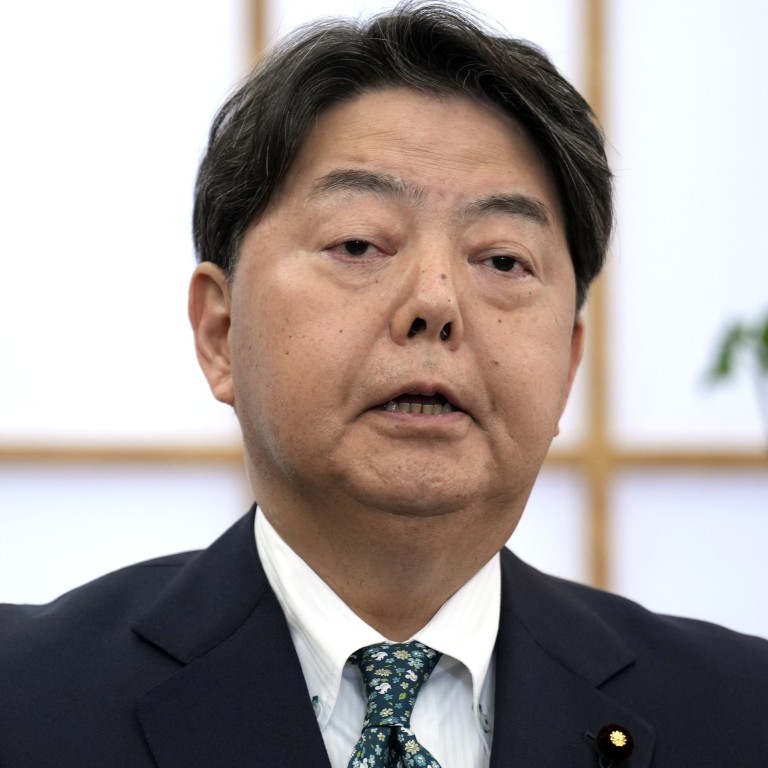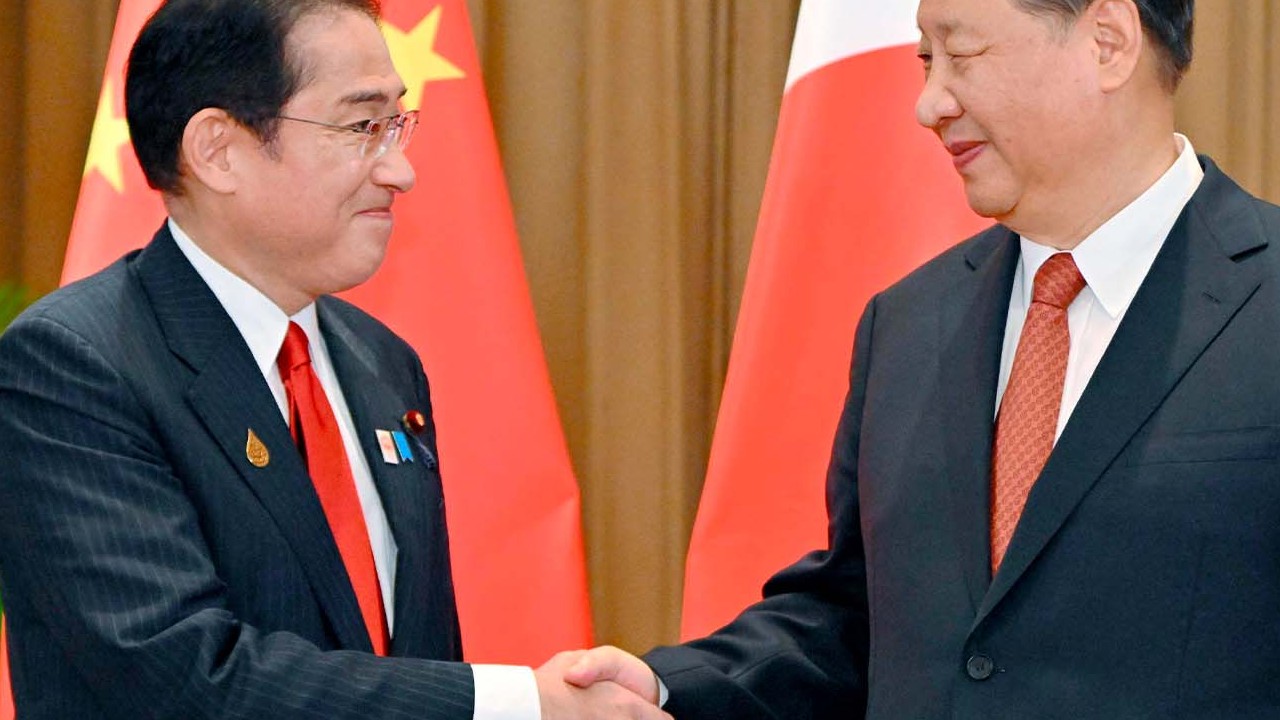
China-Japan relations: Beijing hopes Foreign Minister Yoshimasa Hayashi’s visit will help ‘manage differences’
- Hayashi will meet his Chinese counterpart Qin Gang to ‘explain our position’ at a time of growing tensions between the two countries
- Despite both sides saying they want to improve relations, analysts say their deep-running differences will be difficult to resolve
China has said it hopes the visit by Japanese Foreign Minister Yoshimasa Hayashi this weekend will help the two countries “manage conflicts and differences” after relations took a sharp downward turn in recent years.
Chinese foreign ministry spokeswoman Mao Ning said China was willing to work with the Japanese side “to strengthen dialogue and communication, deepen practical cooperation, manage conflicts and differences, and promote constructive and stable Sino-Japanese relations that meet the requirements of the new era”.
The two-day visit, which starts on Saturday, will be the first in-person meeting between foreign ministers from the two countries since November 2020.
Hayashi’s trip was agreed by Chinese President Xi Jinping and Japanese Prime Minister Fumio Kishida at a summit in Bangkok in November last year. It was initially scheduled for December but was postponed at least twice due to what the Chinese side described as a “scheduling conflict”.
Qin then repeated the invitation in a phone call with Hayashi last month, according to Kyodo.
China top concern in Japanese PM’s diplomatic activism, pundits say
Hayashi said on Friday that Tokyo wanted constructive and stable relations but warned “Japan-China relations are facing many challenges and concerns, although there are various possibilities [for cooperation]”.
But relations have been on a downward spiral over the past three years – especially following the release of Japan’s new defence strategy in December, which identified China as its “greatest strategic challenge ever”, and Beijing’s efforts to strengthen ties with Russia after its invasion of Ukraine.
Analysts played down hopes for any breakthrough or reset during the trip.
“It’s good to see Hayashi is visiting China, but it is against the backdrop that Sino-Japanese ties have hit the lowest point since the end of World War II,” said Shi Yinhong, a professor of international affairs at Beijing’s Renmin University.
“Tokyo has actively sought alignment with Washington on China while preparing for a possible conflict over Taiwan and in the East China Sea [site of a long-running territorial dispute of the Diaoyu or Senkaku islands].”
Meanwhile, Shi added, Beijing had also adopted a series of hawkish military and diplomatic countermeasures.
He said the two sides might find ways to resolve “temporary and minor disputes” but described Japan as Washington’s top ally in confronting China.
“Under these circumstances, who can envisage that a single visit by a foreign minister would in any way help substantially change the hostility between them and the confrontational actions that are and will be undertaken by both sides?” Shi added.
He will then travel to Brussels for a meeting of Nato foreign ministers on Monday, which will also be attended by South Korea, Australia and Ukraine.
Mao, from the Chinese foreign ministry, said politicising and weaponising technological issues, as well as destabilising global production and supply chains, would harm everyone.
Japan PM refused China envoy farewell meeting amid Diaoyus tensions
Meanwhile, the White House’s Indo-Pacific Coordinator Kurt Campbell said the competition between China and the US was “in the early stages of a new phase”.
He told the Washington think tank Centre for a New American Security on Thursday that efforts to find areas of cooperation had not succeeded yet and there was need for cold war-style hotlines and other mechanisms to manage crises.


